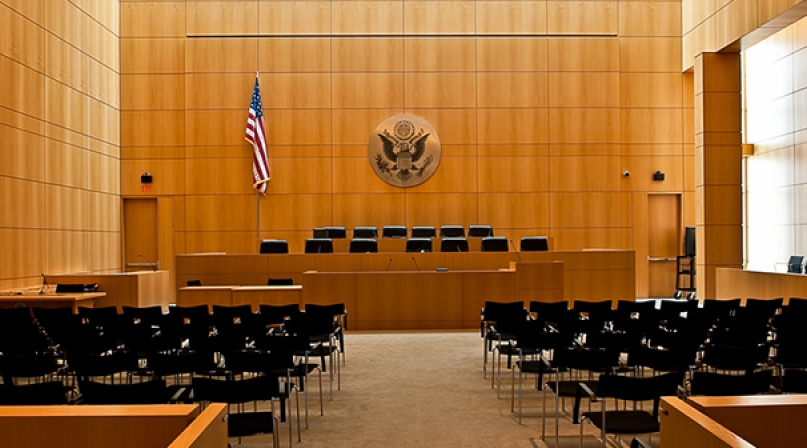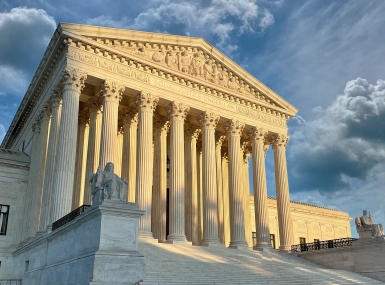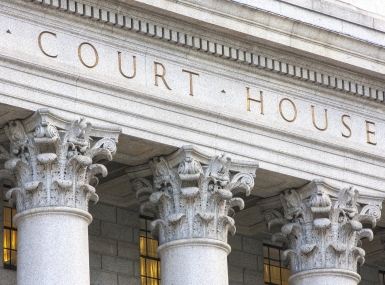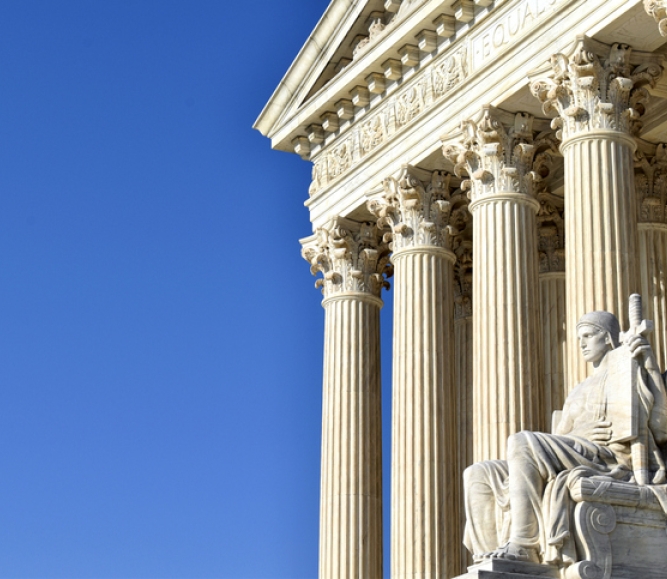Supreme Court Update: Chiaverini vs. City of Napoleon
Upcoming Events
Related News

Supreme Court Update: Chiaverini vs. City of Napoleon, Ohio
COUNTY NEXUS
When private citizens file meritless civil rights claims against police for alleged malicious prosecutions, counties can bear significant financial liability and practice of standard law enforcement may see a chilling effect.
BACKGROUND
This case focused on the constitutionality of the "any-crime" rule for a malicious prosecution claim, which says that when an individual receives multiple charges, probable cause for any one charge insulates every other charge from a malicious prosecution claim under Section 1983 unless a plaintiff shows that the addition of another, baseless charge caused or lengthened his detention. A jewelry store owner whose malicious prosecution lawsuit against the City of Napoleon, Ohio was dismissed on this basis argued that the "charge-specific rule" should apply, in which a malicious prosecution claim can proceed as to a baseless criminal charge, even if other charges brought alongside the baseless charge are supported by probable cause, regardless of whether that charge actually caused or lengthened a detention.
NACo ADVOCACY
In a Local Government Legal Center Amicus Brief in support of the respondent, NACo argued that local governments and local law enforcement officers frequently face claims of malicious prosecution—the vast majority of which are meritless but costly to litigate. We urged the Court not to adopt the "charge-specific" rule urged by the petitioners as it would increase liability for counties indemnifying police officers and run the risk of creating a chilling effect on law enforcement and prosecutors.
CURRENT STATUS
On June 20, the Court issued a 6-3 ruling that narrowly favored the petitioner, holding that that the existence of probable cause for one charge does not “create a categorical bar” against a malicious prosecution claim relating to other charges and vacating the Sixth Circuit's ruling to the contrary. However, the Court did not reject the respondent's position, echoed by the LGLC amicus brief, that unless the invalid charge caused or lengthened a detention, there is no Fourth Amendment violation. The Sixth Circuit and other courts can still hold that a hold that a Fourth Amendment malicious prosecution fails where there was probable cause for one charge as long as other invalid charges did not cause or lengthen the detention. Learn more here.
2024-2025 Supreme Court Term

NACo Legal Advocacy: Ames v. Ohio Department of Youth Services
As one of the largest employers in the country, counties have a significant interest in cases like Ames v. Ohio Department of Youth Services (Ames v. Ohio) that could expand county liabilities as employers.

NACo Legal Advocacy: City of Buffalo et al. v. Kia/Hyundai
The question at hand in City of Seattle et al. v. Kia/Hyundai is whether or not the Federal Motor Vehicle Safety Standard preempts state tort claims brought forth by local governments alleging that Kia and Hyundai’s failure to install “reasonable” anti-theft technology constitutes negligence and public nuisance.

NACo Legal Advocacy: Perttu v. Richards
Perttu v. Richards has implications on the Prison Litigation Reform Act (PLRA) and could increase the amount of Section 1983 inmate-initiated cases against county jails that reach federal court, ultimately resulting in counties having to expend resources on frivolous lawsuits.

NACo Legal Advocacy: McLaughlin Chiropractic Associates, Inc. V. McKesson Corporation
McLaughlin Chiropractic Associates, Inc. V. McKesson Corporation could make it more difficult for counties to challenge FCC orders, many of which have taken steps to preempt and curtail local authority by limiting counties’ abilities to manage their own right of way and assess fair market value permitting and impact fees on providers seeking to construct, modify or extend telecommunications infrastructure in their communities.

NACo Legal Advocacy: San Francisco v. Environmental Protection Agency (EPA)
San Francisco v. Environmental Protection Agency (EPA) has implications for the ability of county governments that own and operate wastewater treatment facilities to comply with National Pollutant Discharge Elimination System (NPDES) permit requirements.

NACo Legal Advocacy: Lackey v. Stinnie
Lackey v. Stinnie will impact the ability of state and local governments to avoid paying litigation fees in a civil rights case if they change their conduct (i.e. repeal a law) after a court has granted a preliminary injunction.

NACo Legal Advocacy: Bondi v. VanDerStok
Garland v. VanDerStok has implications for the ability of county law enforcement to uphold public safety and investigate crimes involving ghost guns.

NACo Legal Advocacy: Stanley v. City of Sanford
Stanley v. City of Sanford will impact the ability of county governments to balance budgets by reducing or eliminating post-employment benefits for disability retirees.

NACo Legal Advocacy: EMD Sales, Inc. v. Carrera
EMD Sales, Inc. v. Carrera could make it more difficult for county governments to prove exemptions under the Fair Labor Standards Act (FLSA), which would increase the potential for costly litigation.

NACo Legal Advocacy: Federal Communications Commission, et al v. Consumers' Research, et al
Federal Communications Commission, et al v. Consumers’ Research, et al. (FCC v. Consumers’ Research) could jeopardize what is known as the Universal Service Fund (USF). Through the USF, the FCC has provided billions of dollars to local governments and our residents, helping provide essential telecommunications and broadband services to unserved and underserved communities. FCC v. Consumers’ Research challenges the FCC’s legal authority behind the USF, putting multiple programs essential to equitable broadband deployment at risk.
Featured Initiative
Supreme Court Advocacy Hub
